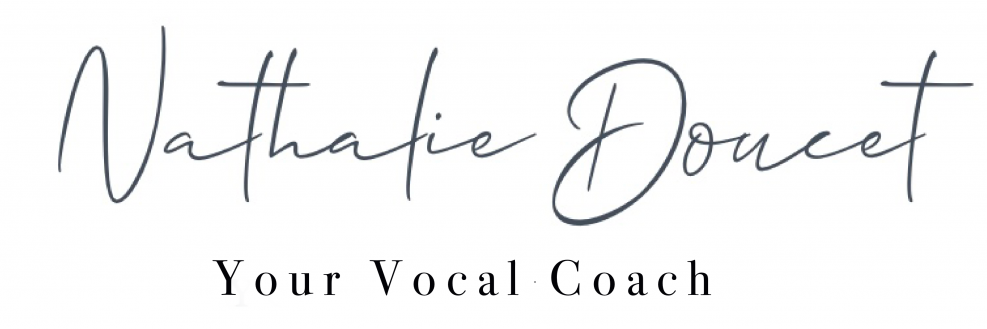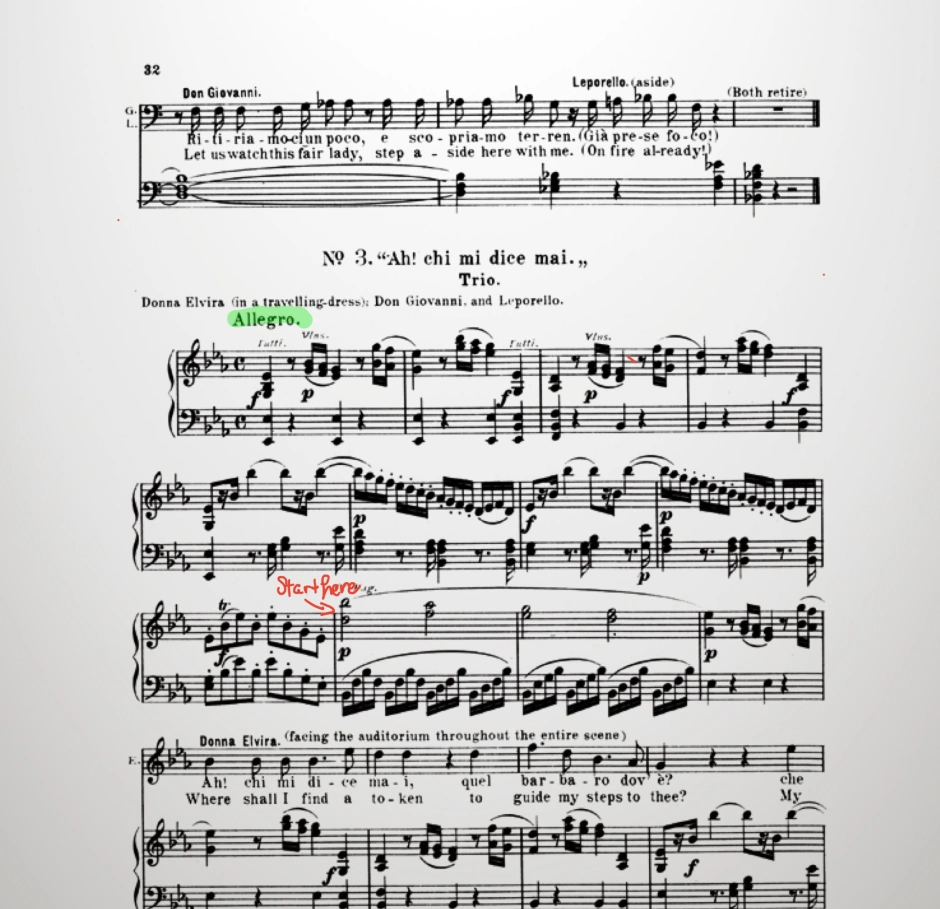Series: Frequently Asked Questions-Part 1
I have reached out on the social media platforms for singers to ask me their burning questions. From these, I will create the “Frequently Asked Questions” series. If any of you have any questions, feel free to send me a message and maybe they will appear in a future post!
Question: “Should I apply to sing in masterclasses? What can I expect?” -Anonymous Soprano
What is a Masterclass, and why take part in one?
In the world of music, we love masterclasses! A masterclass is essentially a class given to advanced students of a particular discipline by an expert of that discipline while fellow students or an audience observes. The main difference between a class and the masterclass is how it is set-up. It is a cross between giving/taking a lesson and performing. In a singing masterclass, the student will typically perform an aria or a song, and then the master will share advice on how to sing the aria or song.
When the masterclass is open to a general audience, the master can give more “general-public friendly” advice to the singer. The goal is to simultaneously entertain an audience who is made up of fans of the master and singing aficionados as well as give the singer nuggets of information that they can take with them. A private masterclass given at educational institutions, with students in the audience is less about the “show” and more about the work.
There are several reasons singers choose to participate in a masterclass.
- You are a fan of the singer/coach/director/conductor giving the class: You admire their work, their career and, you identify with them on an organic level. You genuinely want to learn from them.
- Networking: Although this should not be the main reason to participate in a masterclass, it is a significant consideration. A high profile masterclass can put you in a spotlight, suddenly singing for a vast audience that may include future employers. Beware: If the masterclass performance goes well, that is great, but if it goes badly, it just happened in front of that same audience. Nota bene: These days, masterclasses can be streamed online or filmed and distributed.
- It is something singers like to put on their résumé under the title “Masterclasses”: To be quite honest, when I read a résumé, I am not entirely interested in your masterclass experience, so I don’t consider this section too much.
- Requirement: You are asked to sing in the class by your studio program or your institution
If you don’t want to sing in a masterclass, or maybe you are just not ready yet to be selected, attending it can be just as rewarding if not more because you don’t have to cope with the pressure of performing and you can absorb all the information. As an auditor, think of doing the following:
- Bring a notebook and write down notes, advice from the master and points that can help you in your journey.
- Learn repertoire, note the pieces performed, maybe even find repertoire you aspire to sing.
- Let the atmosphere inspire you and leave the class motivated.
- Connect with like-minded people.
How to prepare to sing in a masterclass
After being chosen and deciding that you want to sing in a masterclass, you should consider the following to be adequately prepared. Remember that although you are there to learn, you also want to do everything you can to show yourself in the best possible light.
- Choose repertoire you know well: Polish your selection and make sure you have had a lot of experience singing it. Being in a masterclass situation can sometimes throw you off. You don’t want the extra pressure of singing an underprepared piece.
- Know your translation: Be capable of fluently translating the text starting at any given point of the piece.
- Be prepared to stop at any time. The master will (hopefully) stop you often. Make sure that even if you are stopped after every two bars, it doesn’t throw you off.
- Be prepared to take criticism: This is very important. Although masterclasses are meant to be a learning environment, this does not mean you will only get positive feedback from the master. Be prepared to take this criticism gracefully. Be open to try new things suggested by the master, and do it all with a smile even when you disagree.
- Don’t expect to retain all of what you have done in your 20-minute session. Although you will hold on to some tips and information, many of the new concepts that worked in the moment, might not work again unless you apply it long term with a teacher. They will be in a file stored away in your brain, and perhaps they will pop out of nowhere when you are ready for them in the future.
- Most important: Already have a solid grasp on your vocal technique. While the master teacher gives their pointers and advice, the expectation is that you can produce a change quite quickly without completely unraveling, and this can only be achieved, if your technique is solid enough to try new concepts.
Things that can happen in a masterclass
- While singing in a masterclass you may have the lesson of your life; the master gets you to sing as you have never sung before. In 20 minutes, they say all the things that get you to make the most wonderful sounds you have ever made. Afterward, you take this to your teacher, and you are not able to reproduce the sounds you made before. The reason for this is simple enough: the concepts introduced to you in a 20-minute session with a master need to be followed-up weekly to integrate it into your vocal technique. In the class, the master is helping you along, coaching you through the concept, but unless this is followed-up long-term, it will probably not stick. If your regular teacher is attending the masterclass, they can help you translate this concept into your current technical journey.
- The master may tell you that you are not the voice type you present yourself to be, maybe not directly, but a statement like: “Are you sure you are a mezzo-soprano?” or “I think you are potentially a dramatic soprano voice” and this raises many questions for you. Just because a master says this, does not mean you should run out and change your fach. They may be right, but you should discuss it with your voice teacher and your coach to see what they say about this. They are your team, they see you every week, and they know your voice inside and out. They will guide you through this. While in the masterclass, accept these statements without too much comment (the last thing you want to do is start a discussion because it will eat into your allocated time) and then speak with your trusted team afterward.
- Although masterclasses are generally positive and very worthwhile experiences, the master teacher may be very demanding, and they can seem impatient. It is important to keep your composure at all times. Years ago, I played for a masterclass where the master teacher was not particularly interested in one of the voices. He was very hard on the student and it did not yield good results-in fact-we were all uncomfortable. The singer, however, never lost his composure and gained the admiration of the audience.
What you can expect to take away from a Masterclass:
I often give masterclasses and I have also played in hundreds of them. They can be a celebration where singers and singer friendly people come together to explore new things:
- Nuggets of valuable information: You will retain many of the concepts presented to you, such as stylistic advice, diction advice, and technical tips. This information from people at the top of their field will be with you forever! I suggest making notes immediately after the class so that you don’t forget what was said. Nota bene: recording is sometimes prohibited, so always ask the organizers if you may record the session.
- An unforgettable experience: Meeting and singing for someone you respect is a surreal experience. It can feel both wonderful and crazy. You may catch yourself thinking: “I can’t believe I am singing for [insert name]” the whole time.
- A performance opportunity: This is simple enough. In any masterclass situation, you get to perform in front of an audience.
- Inspiration and motivation: If the master teacher is good, you will feel inspired. They will bring out things in your singing and artistry. It will then motivate you to work on them. After inspiring masterclasses, the students run to a practice room to continue the work.
All conservatories, universities, and summer programs have some form of masterclass series. Even in this present time of the global pandemic, Masterclasses survive online, and it is even easier to get top-level people to give the classes. An online experience can be just as informative and exciting as it is in person.
It is important to connect with people at the top of their profession such as elite singers, teachers, coaches, directors and conductors. You will learn so much by singing in this kind of situation about where you are in your current journey. You will also learn by auditing a masterclass about how you will handle it when you participate in a masterclass in the future. The reward is what you make of the experience!






You must be logged in to post a comment.